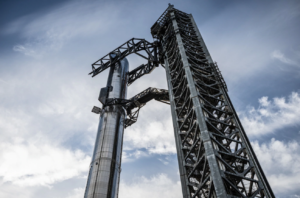
Rocket Lab’s Satellite Components & Future Plan
The space industry is full of different companies and agencies all working on different ways to access or help access space. This often comes in the form of launch vehicles and the service of reaching orbit. However, this is only just scratching the surface of what the industry has to offer. In reality, a lot of the work that goes on behind the scenes helps support the satellites and different features of rockets and more.
Rocket Lab has been growing a lot over the past few years. The company and CEO Peter Beck have stated multiple times that they want the company to be much more than just a launch provider. This alone is a big reason why we have seen Rocket Lab acquire so many companies over time. The acquisition of Sinclair Interplanetary is no exception.
This acquisition helped bring Rocket Lab into the business of satellite components. Among many other benefits, this opportunity helps the company be responsible for more of the process and provide a greater experience for customers. Here I will go more in-depth into the acquisition and why it’s so important for Rocket Lab’s future.
Acquisition

By now in the middle of 2022, Rocket Lab has acquired a decent amount of companies in total. However, a few years ago this was not exactly the case as they showed interest in Sinclair Interplanetary. Specifically, Rocket Lab announced the execution of the agreement to acquire Sinclair Interplanetary on March 16, 2020, pending customary closing conditions and satisfying The Investment Canada Act review process. Terms of the approved deal were not disclosed. Founded in 2001 by Doug Sinclair, Toronto-based Sinclair Interplanetary develops reliable, best-in-class spacecraft hardware, including reaction wheels and star trackers that support rapid-schedule small satellite programs. More than 90 satellites incorporating Sinclair hardware have been launched to orbit, including Rocket Lab-launched satellites from AstroDigital, ALE, and BlackSky. The Sinclair team has been entrusted with developing hardware for world-first missions: BRITE, the world’s smallest space telescope; and The Planetary Society’s LightSail 2, the first satellite in Earth orbit to be propelled solely by sunlight. Satellite communications company, Kepler Communications, has also selected Sinclair reaction wheels for its constellation of 140 Internet of Things satellites currently in development.
The purpose of the acquisition was to strengthen the satellite division of Rocket Lab, which produces the Photon spacecraft line. Sinclair Interplanetary products were intended to become key features of Rocket Lab’s Photon satellite platforms designed for low Earth orbit, lunar, and interplanetary small satellite missions. Rocket Lab also dedicated resources to grow Sinclair’s already strong merchant spacecraft components business. The acquisition enabled Sinclair Interplanetary to tap into Rocket Lab’s resources, scale, manufacturing capability, and innovative technologies to make world-leading satellite hardware accessible to more customers. Both companies have built leading space businesses with consistent strong revenue growth and together, Rocket Lab and Sinclair Interplanetary will provide the small satellite industry with optimized spacecraft solutions and cohesive launch services to make space easy.
At the time of the announcement, Rocket Lab Founder and Chief Executive, Peter Beck, said that “by combining the experience and capabilities of both companies, Rocket Lab will deliver reliable and flexible satellite and launch solutions that enable customers to do more, spend less and reach orbit faster.” Mr. Beck added that “Doug Sinclair and his team at Sinclair Interplanetary are recognized as industry leaders and, like Rocket Lab, they produce best-in-class solutions that satellite operators know they can count on. Sinclair’s dedication to quality and reliability aligns perfectly with Rocket Lab’s commitment to mission success. We’re thrilled to welcome Doug and the entire Sinclair team to the Rocket Lab family, and we look forward to working with them on Sinclair’s continued growth and success.”
Doug Sinclair added “Rocket Lab has played a pivotal role in making it easy for small satellites to access space. By operating as one company, we now have the opportunity to do the same for satellite manufacturing and make our hardware available to more customers globally. We will be able to supply larger constellations than before, and take our hardware out to the Moon and beyond. I look forward to working with Peter and the Rocket Lab team as we move into an exciting new era for Sinclair Interplanetary.”
“When we talk to small satellite operators across the board their challenges are clear: They need to get on orbit faster; they need proven and reliable hardware; and they need the ability to focus on their core business, rather than spending years tied up in hardware development. Rocket Lab and Sinclair Interplanetary are uniquely suited to solve these challenges and make space easy for our customers,” said Peter Beck, Rocket Lab founder and CEO.
“At Sinclair Interplanetary we’ve had the privilege of serving the small satellite community for almost 20 years across diverse and innovative missions,” said Doug Sinclair, founder of Sinclair Interplanetary. “We’re excited to build on our strong heritage by combining the capabilities of Rocket Lab and Sinclair Interplanetary to scale manufacturing, make our hardware available to more customers globally, and be able to supply larger constellations than ever before.”
It’s clear from the reactions and opinions of people involved that this deal was a win win and provided both companies with something they need. Both companies have built leading space businesses with consistent strong revenue growth and together, Rocket Lab and Sinclair Interplanetary will provide the small satellite industry with optimized spacecraft solutions and cohesive launch services to make space easy. According to the deal, Sinclair Interplanetary will continue to be led by Doug Sinclair and the company will maintain its team and facilities in Toronto, Canada. In addition to being incorporated into Rocket Lab’s Photon satellite line, Sinclair Interplanetary hardware will remain available to satellite operators building their own spacecraft.
Satellite Components

Now that we know more about the deal and benefits of the acquisition, we can take a closer look at what exactly Rocket Lab offers. Rocket Lab highlights that they offer a wide variety of high-performance, affordable, rapid-response spacecraft components for small satellite missions. Whether your mission is a one-off technology demonstrator, an interplanetary expedition, or a constellation, they will help you make it happen. In addition, as partially mentioned prior, Rocket Lab satellite components can be incorporated into Photon spacecraft buses for a full mission solution, or purchased separately for incorporation into your own spacecraft design.
Right now Rocket Lab offers two main satellite components. This includes star trackers and reaction wheels. Looking at star trackers first, which Rocket Lab describes as high-performance star trackers and baffles for small spacecraft. Extensively flown and tested, with more than 90 on orbit right now. These provide attitude quaternion and angular rates at 2 Hz Zero initial acquisition time. Other features inculde full lost-in-space solution each frame, processor and star catalog built into unit, and internal corrections for proper motion and stellar aberration. We then have the baffle options for this specific star tracker. These options include no baffle, short baffle, and large baffle. This ranges in price from $120,000 to 140,000.
Next are the reaction wheels. Rocket Lab points out that its high-reliability, vacuum-lubricated reaction wheels are designed for picosatellites, nanosatellites, and microsats. More than 240 wheels are on-orbit, performing well. All Sinclair Interplanetary by Rocket Lab reaction wheels incorporate a built-in digital processor. They can be commanded over a serial bus to produce a desired speed, momentum, or torque. They report digital telemetry concerning speed, temperature, voltage, current, and other health parameters. Here Rocket Lab offers six main reaction wheels each with a different size and components. The first option is their largest wheel, suitable for 100 kg Earth-observation missions. There are currently 52 units on-orbit on 13 spacecraft, with the first launch in June 2016. The last I want to mention is Sinclair Interplanetary’s first wheel design, and still the most popular. First launched in April 2008, there are now more than 50 units on-orbit. Many of these are on board the University of Toronto SpaceFlight Lab’s GNB series of spacecraft. They fit comfortably into a 6U to 12U cubesat.
Conclusion
Rocket Lab has been making great progress in launching rockets however the company has bigger plans for the future. They want to provide more than just a launch service and that is why they have acquired multiple companies including Sinclair Interplanetary. We will have to wait and see how it progresses and the impact it has on the space industry.



